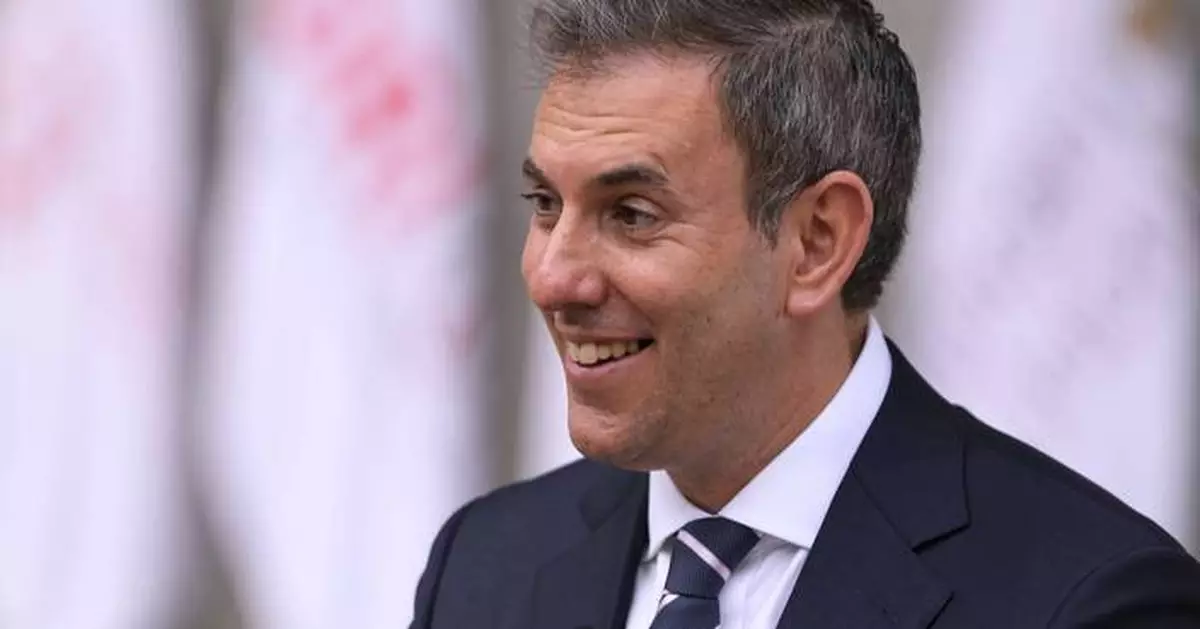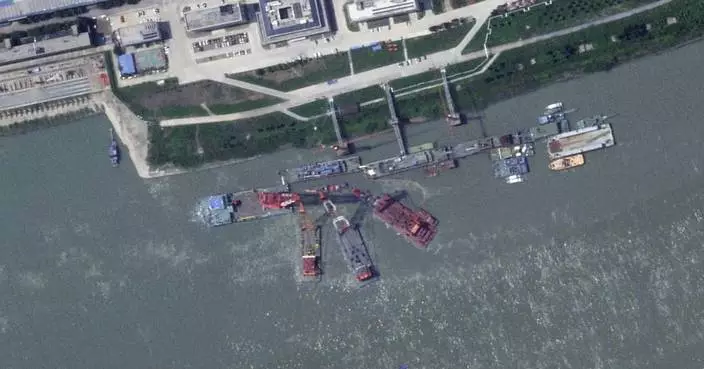BEIJING (AP) — Australian Treasurer Jim Chalmers on Friday welcomed Chinese efforts to stimulate its slowing economy, noting that its recent weakness has hurt Australia.
Chalmers was wrapping up a two-day visit to Beijing, the first to China by an Australian treasurer in seven years, as strained bilateral relations mend.
He told reporters that Australia’s economy was slowing because of global economic uncertainty, high interest rates and China’s slowdown.
“Those three things are combining to slow our own economy considerably and when steps are taken here to boost economic activity and to boost growth in the Chinese economy, subject to the details that will be released in good time, we see that as a very, very good development for Australia,” Chalmers said.
China is the biggest buyer of Australia’s most lucrative exports: iron ore and coal.
“Our resilience and prosperity are closely connected to China’s economy and the global economy,” Chalmers wrote in an opinion piece published Friday in The Australian newspaper. He noted that his department forecasts Chinese annual economic growth at below 5% for the next three years, the weakest expansion since the late 1970s.
While in Beijing the two sides held meetings for the Australia-China Strategic Economic Dialogue, reviving the once annual talks aimed at growing trade and investment after a seven-year hiatus.
In 2020, China introduced a series of official and unofficial trade bans on Australian commodities, including coal, that cost Australian exporters more than 20 billion Australian dollars ($14 billion) a year.
Such “trade impediments” now cost Australian exporters less than AU$1 billion ($690 million) a year, Chalmers says.
At the outset of Thursday's meetings, Zheng Shanjie, chair of China’s National Development and Reform Commission, noted how relations had improved since Chalmers’ center-left Labor Party government was elected in 2020, ending nine years of conservative rule in Australia.
“Our development represents opportunities rather than challenges with each other,” Zheng said through an interpreter.
“At a time when the international situation is intricate and turbulent, it is of great significance for both countries to discuss economic development and cooperation opportunities together,” Zheng added.
Two-way bilateral trade reached a record AU$327 billion ($225 billion) last year, more than double its value when a free trade deal was struck in 2015.
During his visit, Chalmers was expected to raise with the Chinese restrictions on imports of Australian lobsters and red meat from two Australian processors.
Chalmers confirmed he had raised the lobster trade in discussions and said Australia was seeking a “speedy resolution of the rectrictions.” He blamed “technical issues” between bureacracies of the two nations for the delay.
China raised concerns about Australian foreign investment rules.
Chalmers said he had explained to Zheng that Australia's regulations did not target China and had agreed to further discuss the restrictions.
“Ours is a non-discriminatory regime which is about managing risks in foreign investment,” Chalmers said.
“Rejecting proposals is a very rare thing and it isn't just (proposals) from one country,” Chalmers added.
China wants to invest in Australian critical minerals, but Australia shares U.S. concerns over China’s global dominance in critical minerals and control over supply chains in the renewable energy sector.
Citing Australia’s national interests, in June Chalmers ordered five Chinese-linked companies to divest their shares in the rare earth mining company Northern Minerals.
China has been grappling with a lagging economy post-COVID, with weak consumer demand, persistent deflationary pressures and a contraction in factory activity.
Earlier this week, China announced a series of new measures to boost the economy and revive its ailing property sector. The central bank lowered bank reserve requirements by 0.5% as of Friday. It also has slashed interest rates on its loans to commercial banks and lowered the minimum down payments for some mortgages.
Unconfirmed reports Thursday by the South China Morning Post and Bloomberg said the government plans to spend about 1 trillion yuan ($142 billion) on recapitalizing six big state-owned banks.
While China is growing economically closer to Australia, Beijing is becoming militarily more belligerent in the Asia-Paficic region.
On security issues, Chalmers said he raised in his discussions a Chinese aircraft carrier accompanied by two destroyers entering an area near Japan’s shores for the first time last week.
He also raised international concerns over China test-firing an intercontinental ballistic missile into the Pacific Ocean this week.
“I was able to reiterate in the meetings yesterday afternoon our expectations of safe and professional conduct of all militaries operating in our region,” Chalmers said.
“But as you would expect, the overwhelming focus of our discussions here have been the economy,” he added.
McGuirk contributed from Melbourne, Australia.
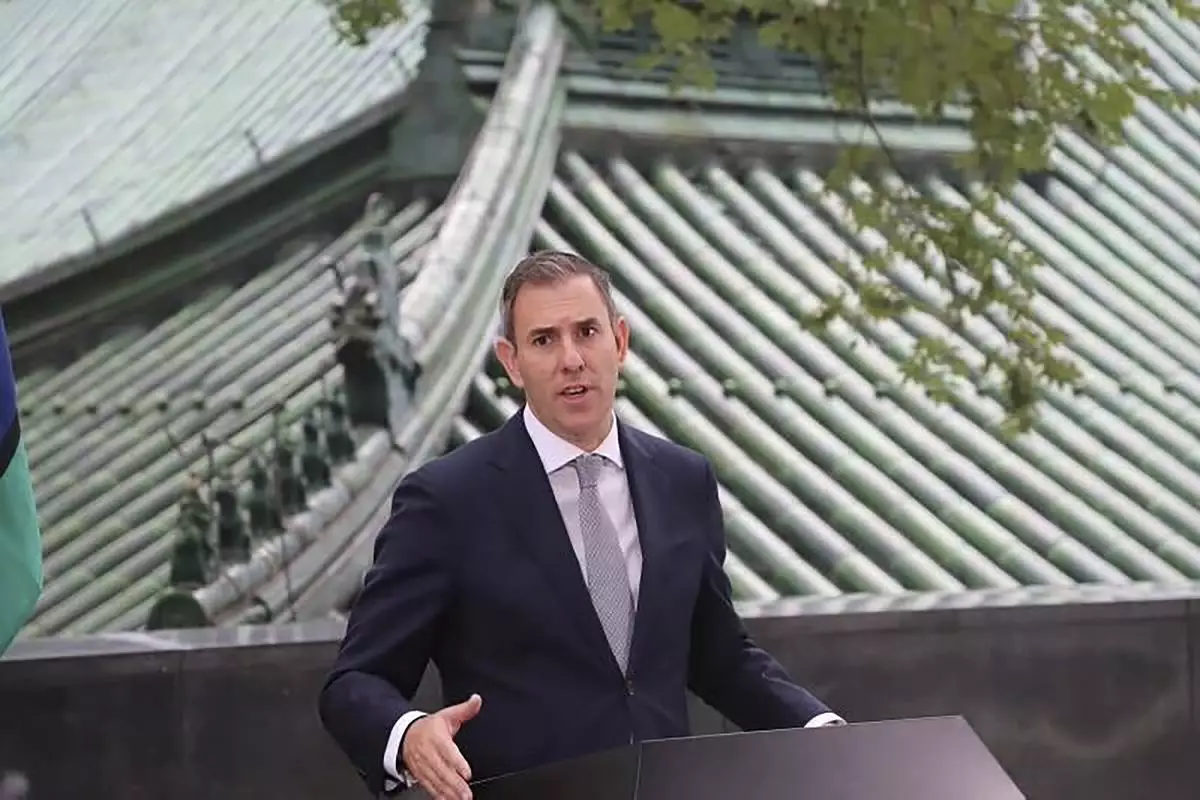
In this photo released by Australian Treasury, Australia's Federal Treasurer Jim Chalmers speaks during a press conference in Beijing Friday, Sept. 27, 2024. (Australian Treasury via AP)
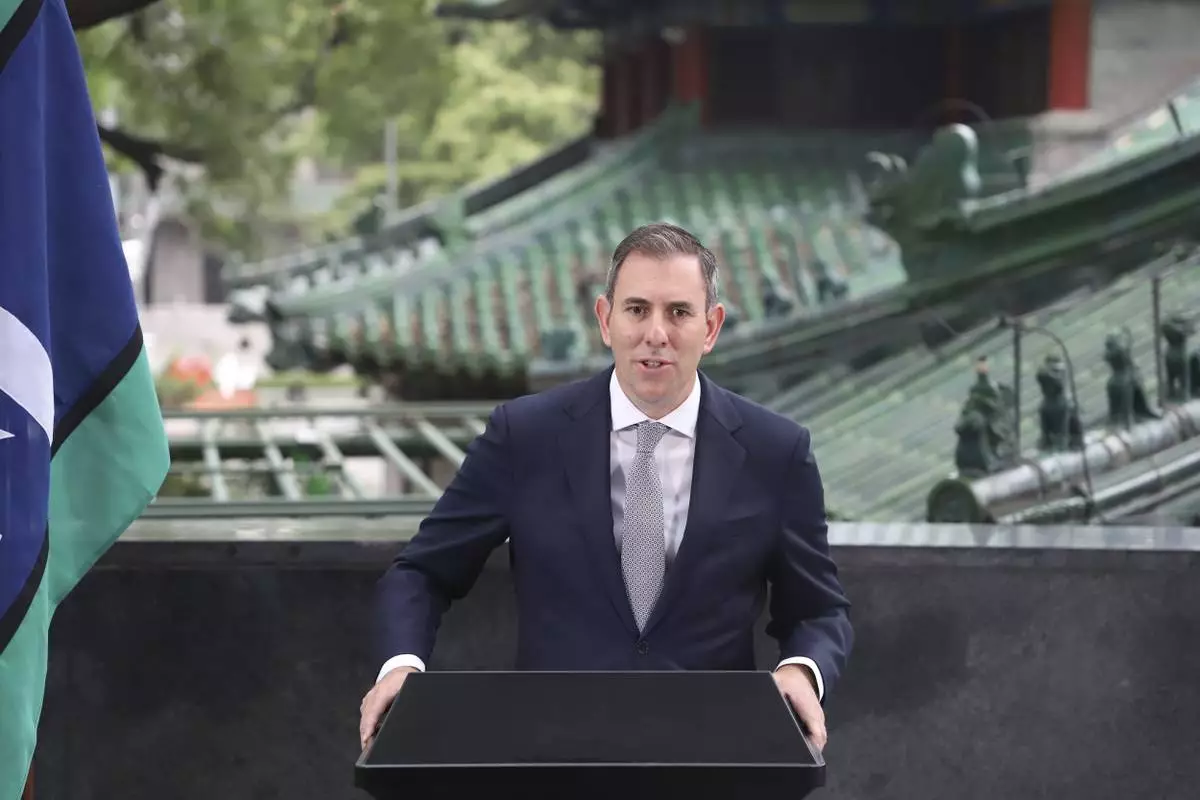
In this photo released by Australian Treasury, Australia's Federal Treasurer Jim Chalmers speaks during a press conference in Beijing Friday, Sept. 27, 2024. (Australian Treasury via AP)
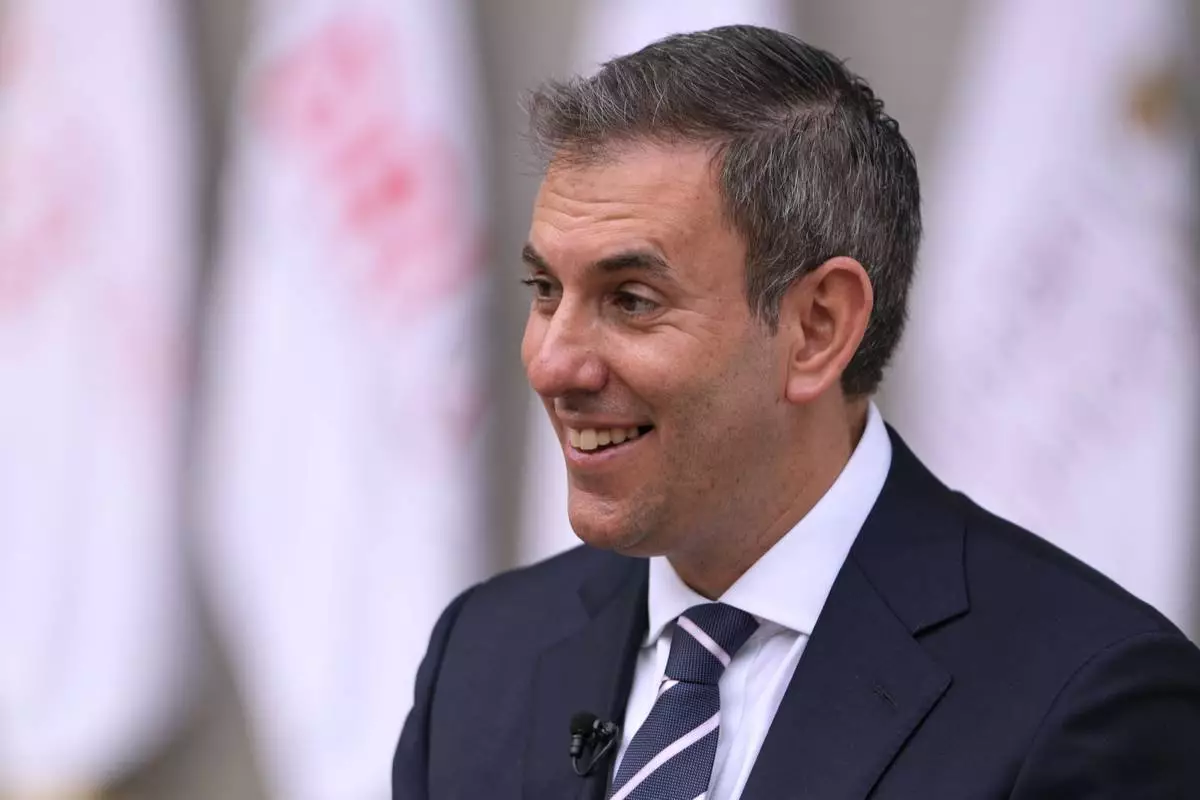
FILE - Australian Finance Minister Jim Chalmers sits for an interview during the G-20 third Finance Ministers and Central Bank Governors (FMCBGs) meeting in Gandhinagar, India, Tuesday, July 18, 2023. (AP Photo/Ajit Solanki, File)
TOKYO (AP) — Japan’s ruling party on Friday picked former defense minister Shigeru Ishiba as leader, setting him up to become prime minister next week.
The party leadership win is a ticket to the top job because the Liberal Democratic Party’s ruling coalition currently controls the parliament.
Considered a defense policy expert, Ishiba has proposed an Asian version of the NATO military alliance and a more equal Japan-U.S. security alliance. Ishiba is a supporter of Taiwan’ s democracy. He calls for an establishment of a disaster management agency in one of the world’s most disaster-prone countries.
Ishiba beat out Economic Security Minister Sanae Takaichi, a staunch conservative who was running to become the country's first female prime minister.
A record nine lawmakers, including two women, ran in a vote decided by LDP members of parliament and about 1 million dues-paying party members. That’s only 1% of the country’s eligible voters.
Outgoing Prime Minister Fumio Kishida has been dogged by party corruption scandals, and the LDP wanted a fresh leader in hopes of regaining public trust before a likely general election.
Some experts believe that party turmoil could mean that Japan will return to an era similar to the early 2000s, which saw “revolving door” leadership changes and political instability.
A succession of short-lived governments hurts Japanese prime ministers' ability to set up long-term policy goals or develop trusted relations with other leaders.
On Tuesday, Kishida and his Cabinet ministers will resign. Ishiba, after being formally elected in a parliamentary vote, will then form a new Cabinet later in the day.
The main opposition — the liberal-leaning Constitutional Democratic Party of Japan — has struggled to build momentum, despite the LDP scandals. But experts say its newly elected leader, centrist former Prime Minister Yoshihiko Noda, is pushing a conservative shift for the party, could trigger a broader political regroupings.
Follow AP's Asia-Pacific coverage at https://apnews.com/hub/asia-pacific

Sanae Takaichi speaks before a runoff election at the Liberal Democratic Party's (LDP) leadership election Friday, Sept. 27, 2024, at the party headquarters in Tokyo. (AP Photo/Hiro Komae, Pool)
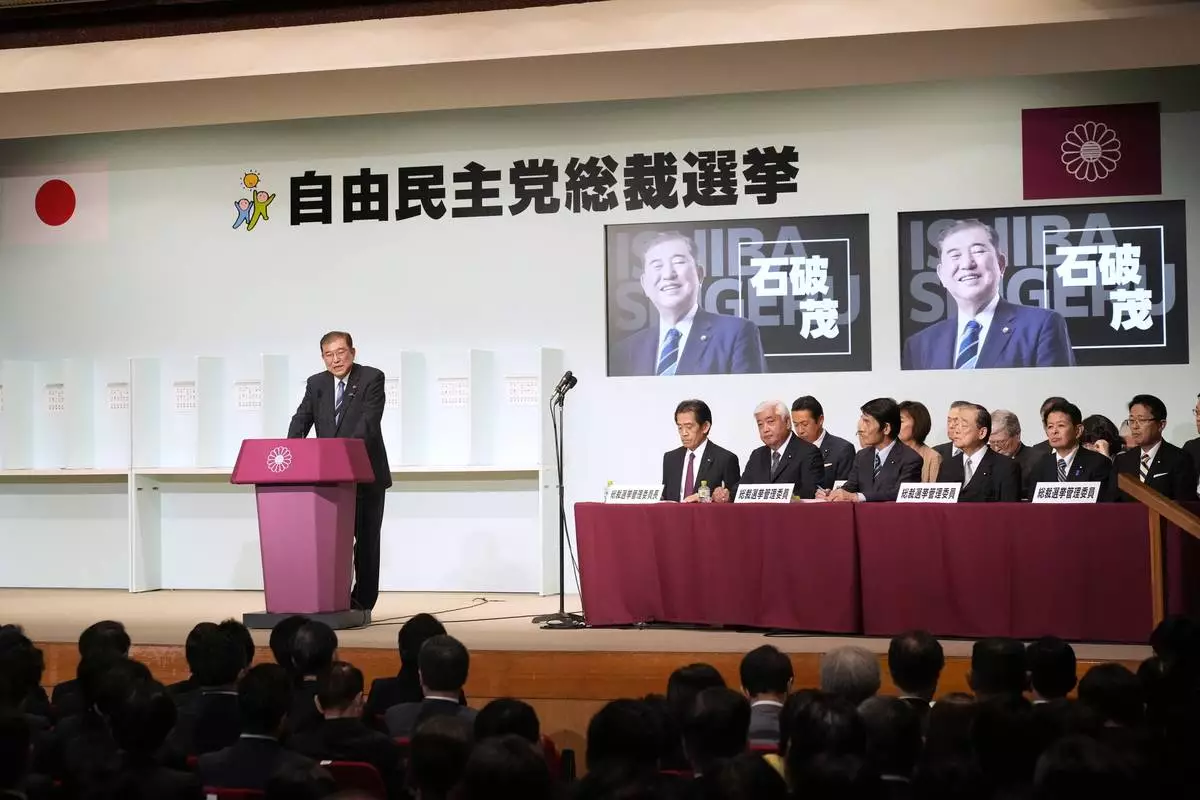
Shigeru Ishiba speaks before a runoff election at the Liberal Democratic Party's (LDP) leadership election Friday, Sept. 27, 2024, at the party headquarters in Tokyo. (AP Photo/Hiro Komae, Pool)
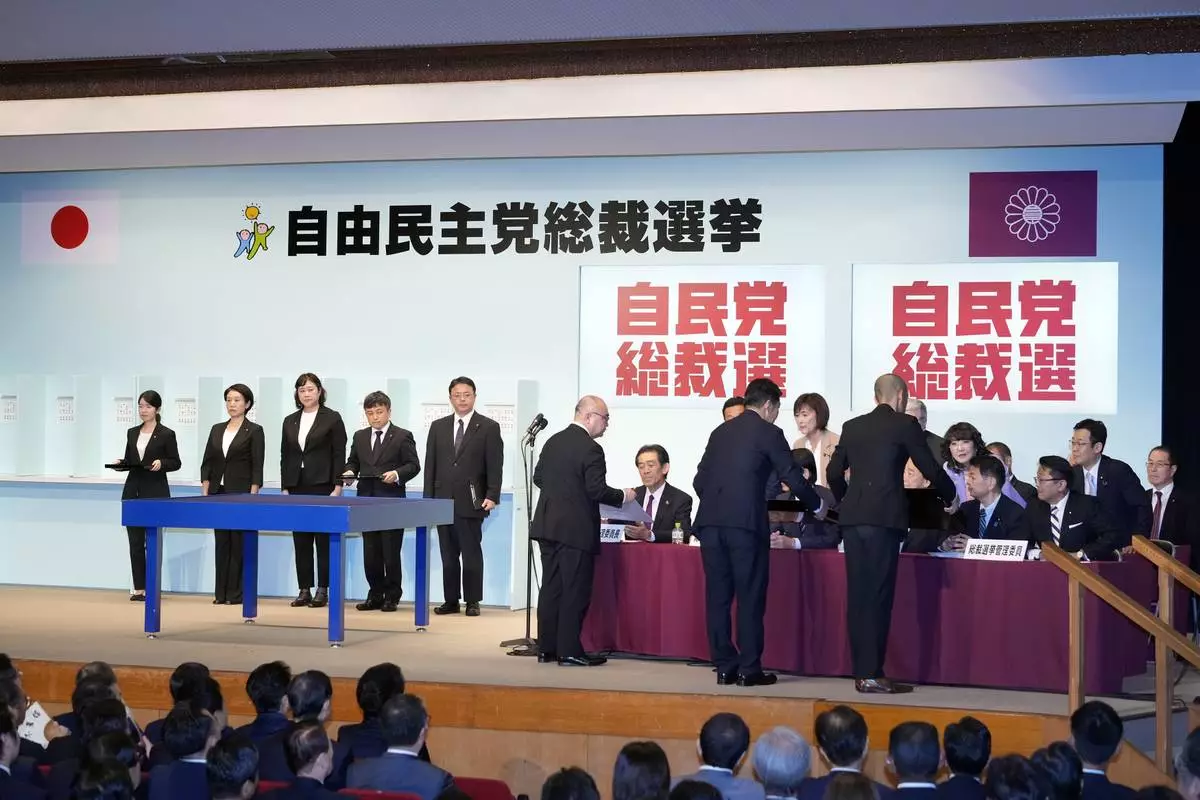
Officials show the result of the first voting to Election Commission during the Liberal Democratic Party's (LDP) leadership election at the party headquarters Friday, Sept. 27, 2024, in Tokyo. (AP Photo/Hiro Komae, Pool)
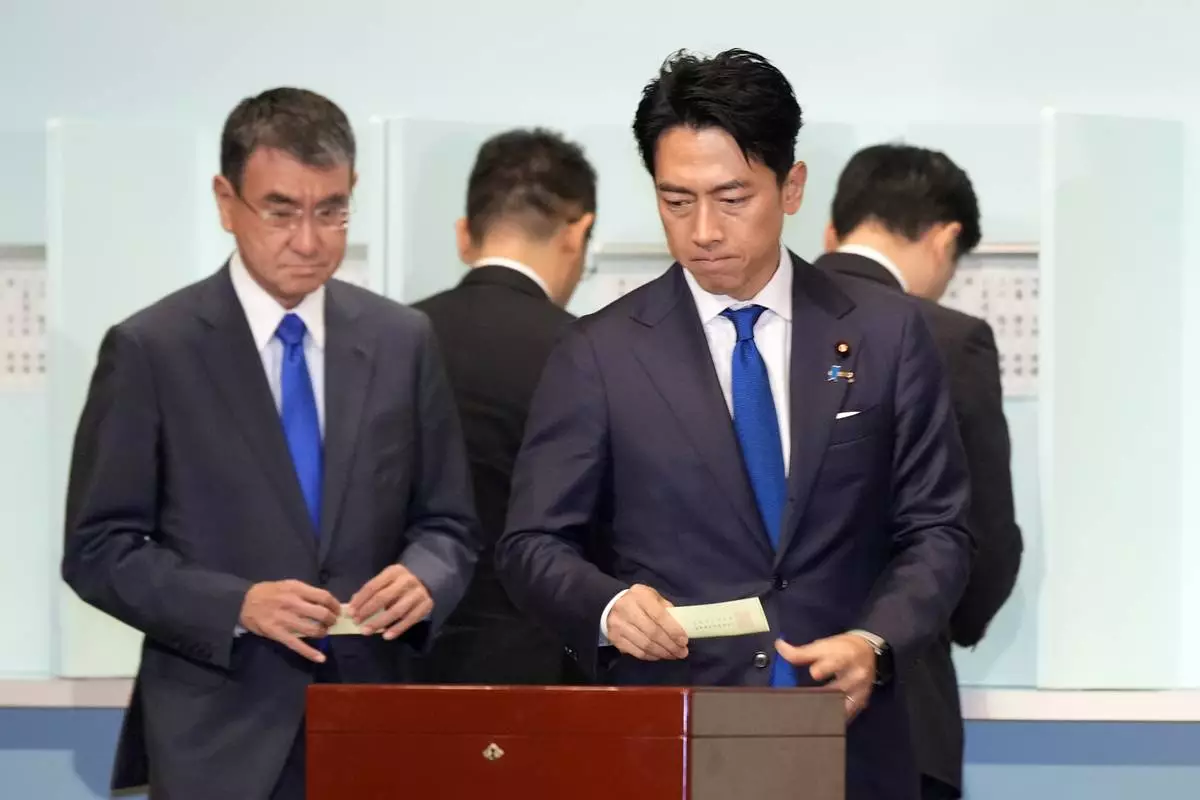
One of candidates, Shinjiro Koizumi, right, casts his ballot at the ruling Liberal Democratic Party's (LDP) leadership election at the party headquarters, Friday, Sept. 27, 2024, in Tokyo. (AP Photo/Hiro Komae, Pool)
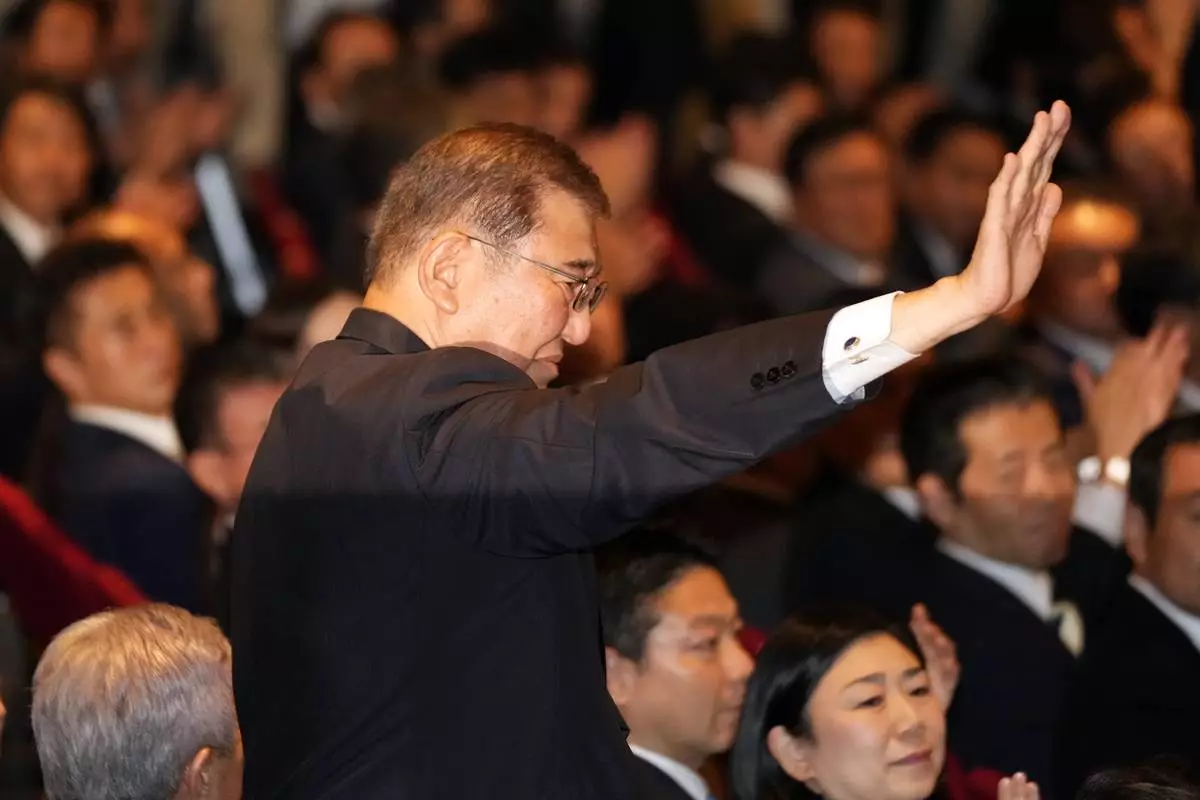
Shigeru Ishiba acknowledges after he was elected as new head of Japan's ruling party at the Liberal Democratic Party's (LDP) leadership election Friday, Sept. 27, 2024, at the party headquarters in Tokyo. (AP Photo/Hiro Komae, Pool)
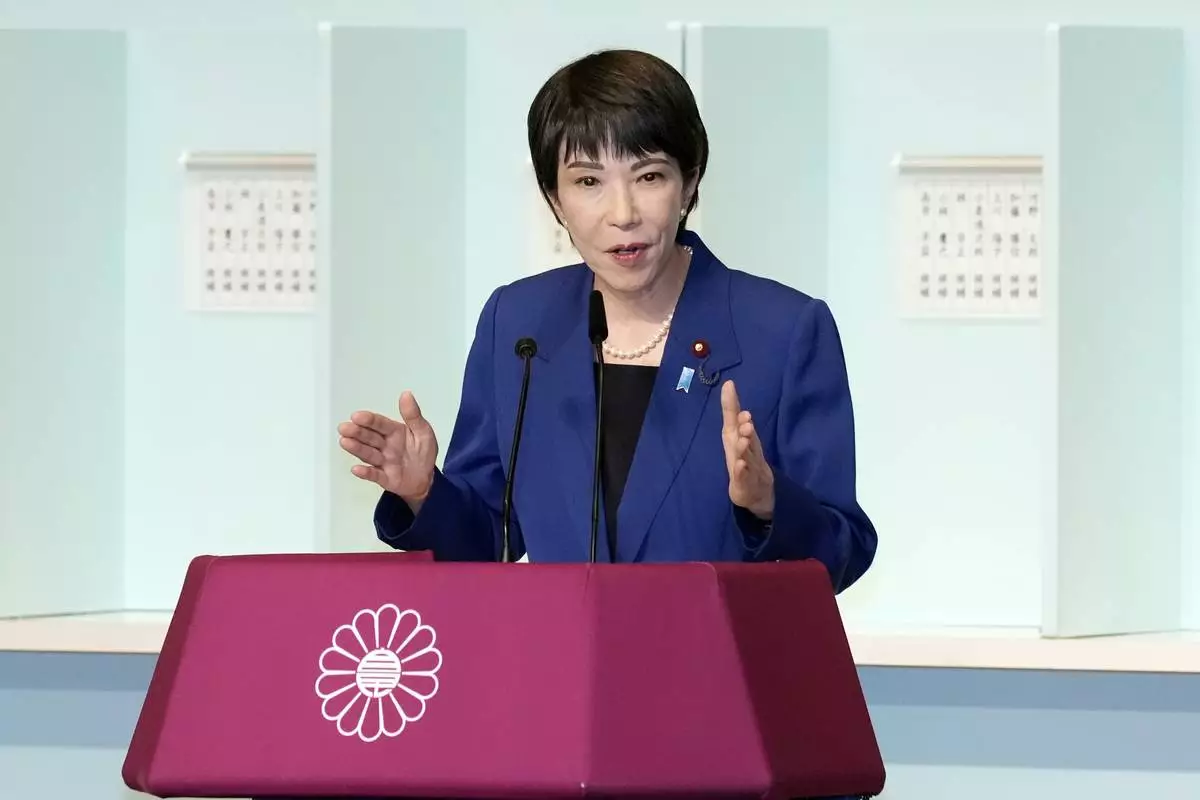
Sanae Takaichi speaks before a runoff election at the Liberal Democratic Party's (LDP) leadership election Friday, Sept. 27, 2024, in Tokyo. (AP Photo/Hiro Komae, Pool)
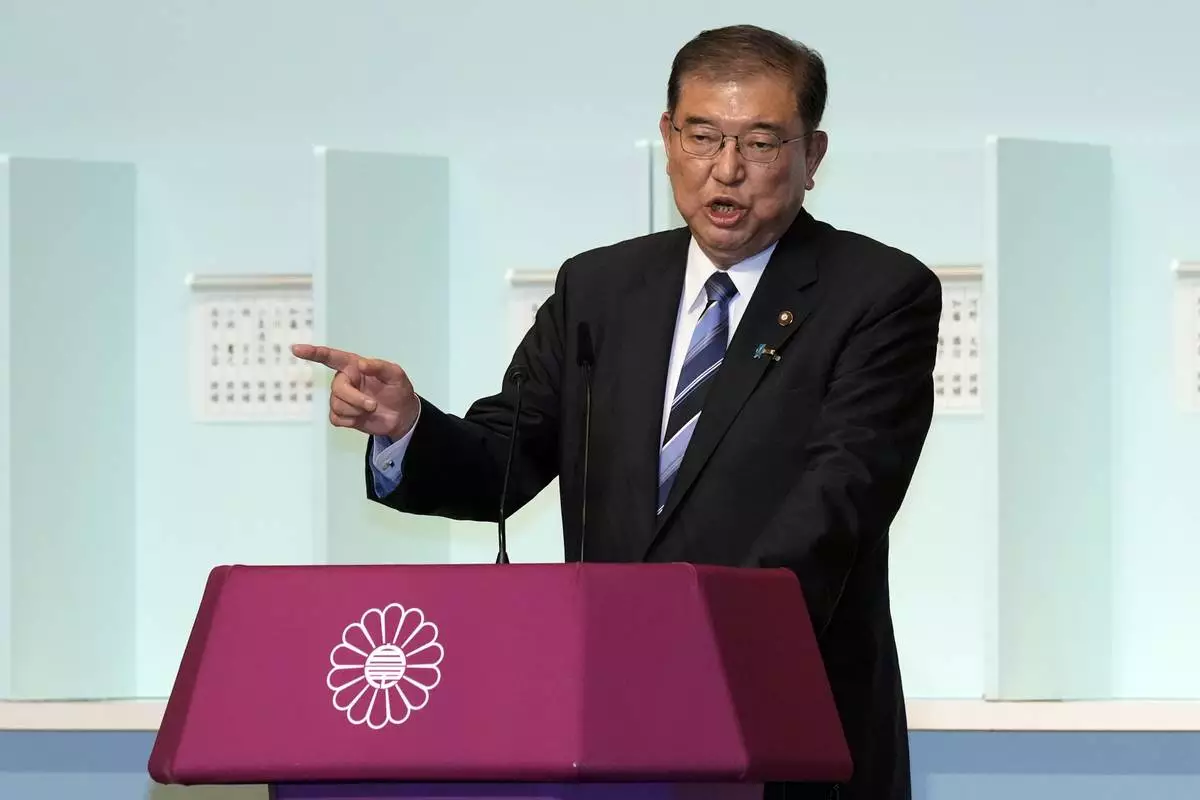
Shigeru Ishiba speaks before a runoff election at the Liberal Democratic Party's (LDP) leadership election Friday, Sept. 27, 2024, at the party headquarters in Tokyo. (AP Photo/Hiro Komae, Pool)
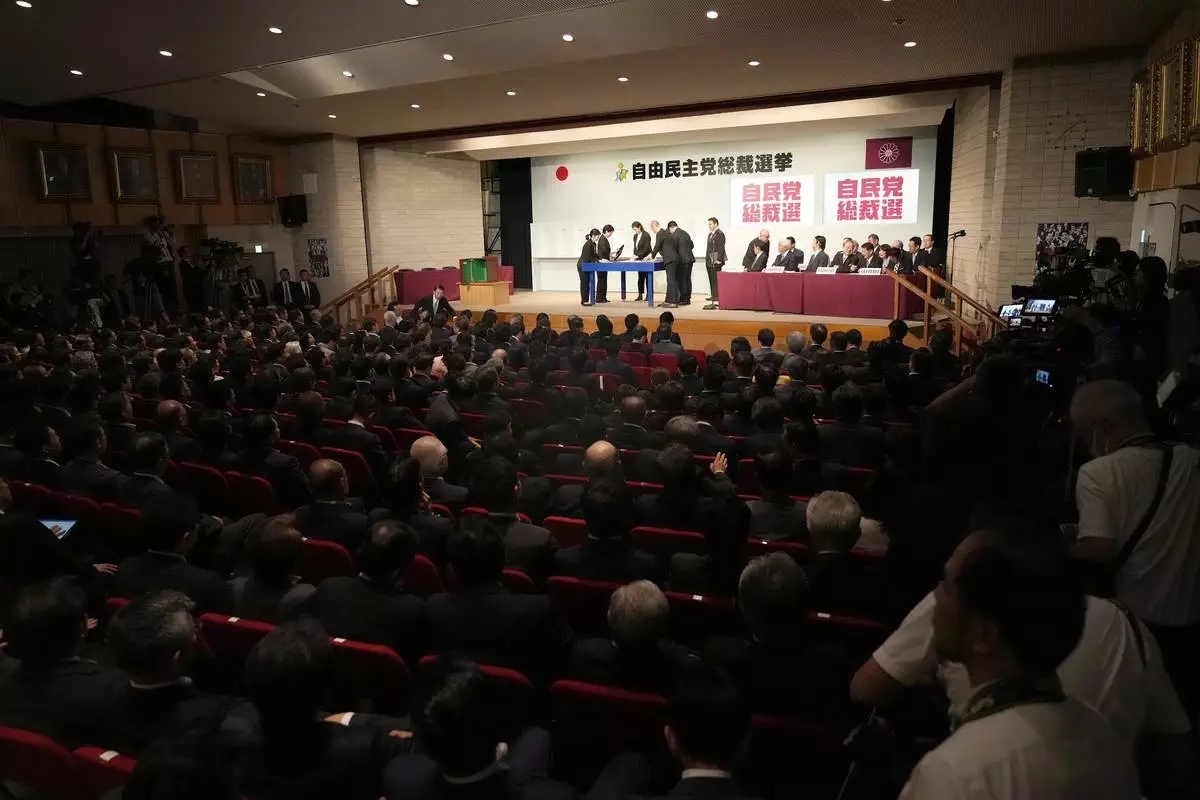
Officials count ballots during the ruling Liberal Democratic Party's (LDP) leadership election at the party headquarters Friday, Sept. 27, 2024, in Tokyo. (AP Photo/Hiro Komae, Pool)
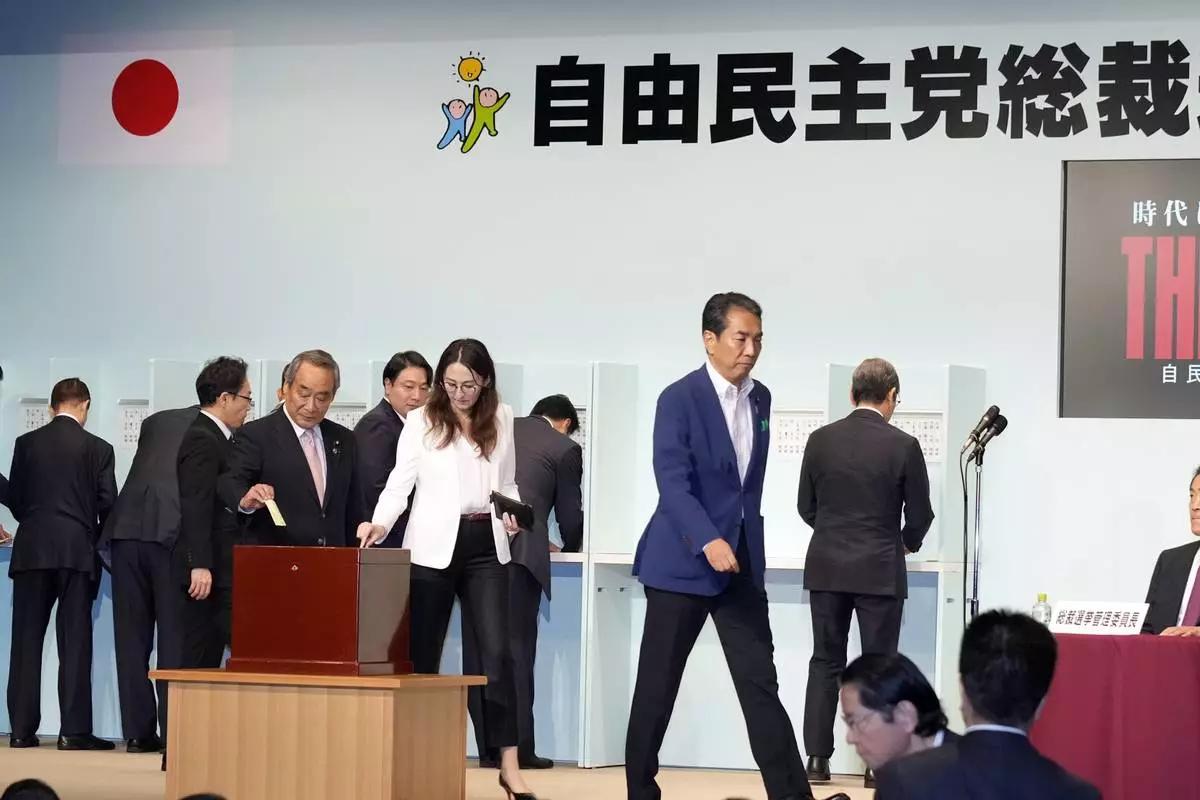
Party members cast their ballots at the Liberal Democratic Party's (LDP) leadership election Friday, Sept. 27, 2024, in Tokyo. (AP Photo/Hiro Komae, Pool)
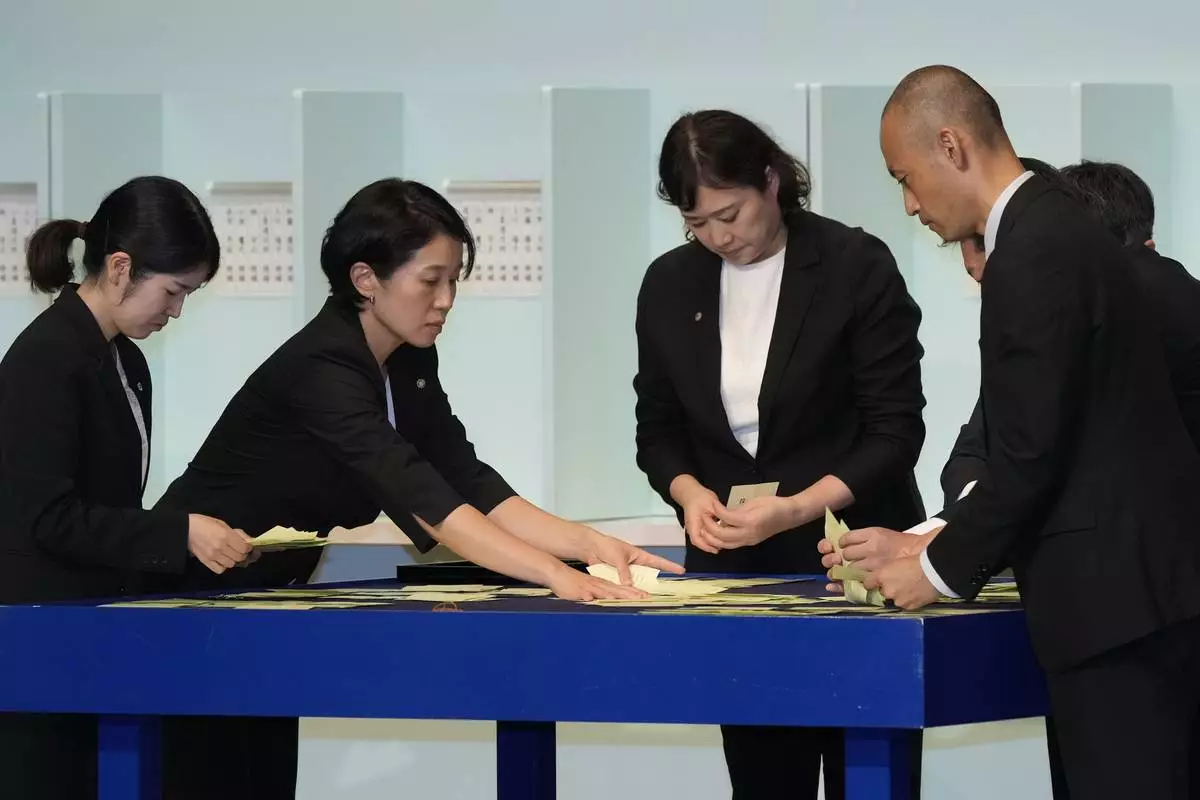
Officials count ballots during the Liberal Democratic Party's (LDP) leadership election at the LDP headquarters Friday, Sept. 27, 2024, in Tokyo. (AP Photo/Hiro Komae, Pool)
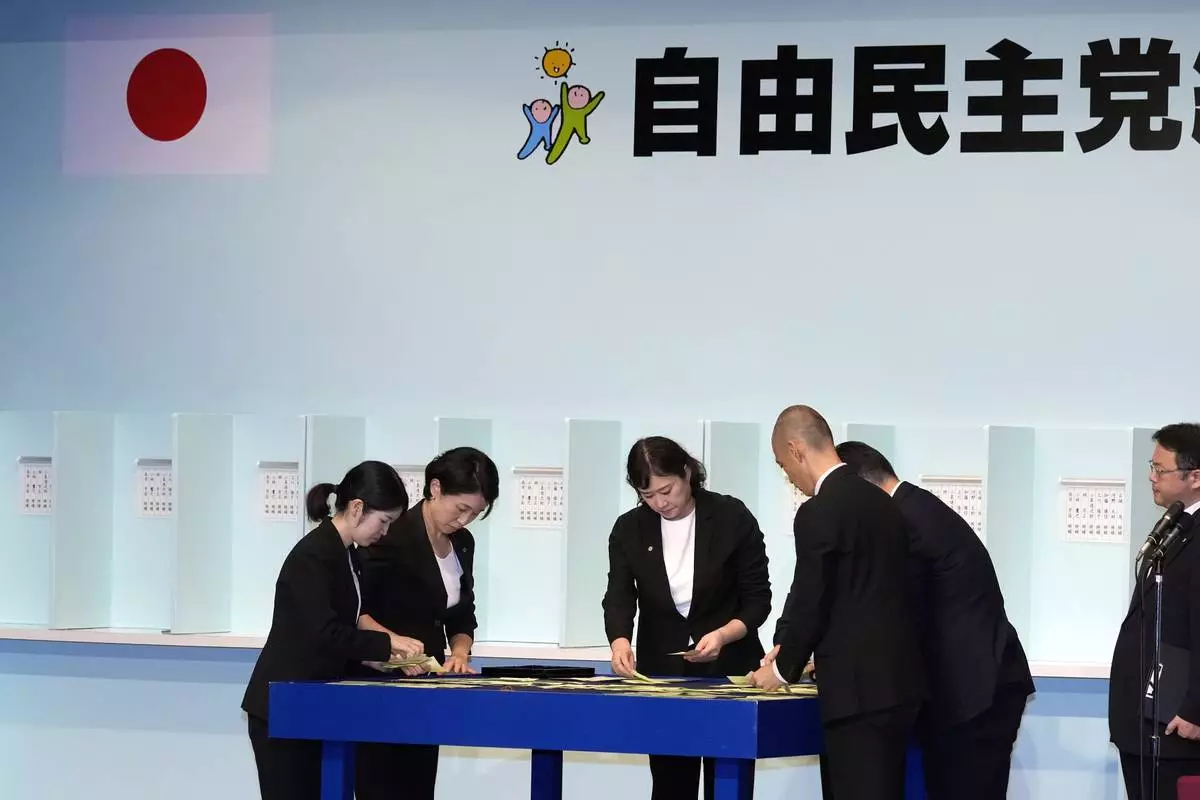
Officials count ballots during the Liberal Democratic Party's (LDP) leadership election at the LDP headquarters Friday, Sept. 27, 2024, in Tokyo. (AP Photo/Hiro Komae, Pool)
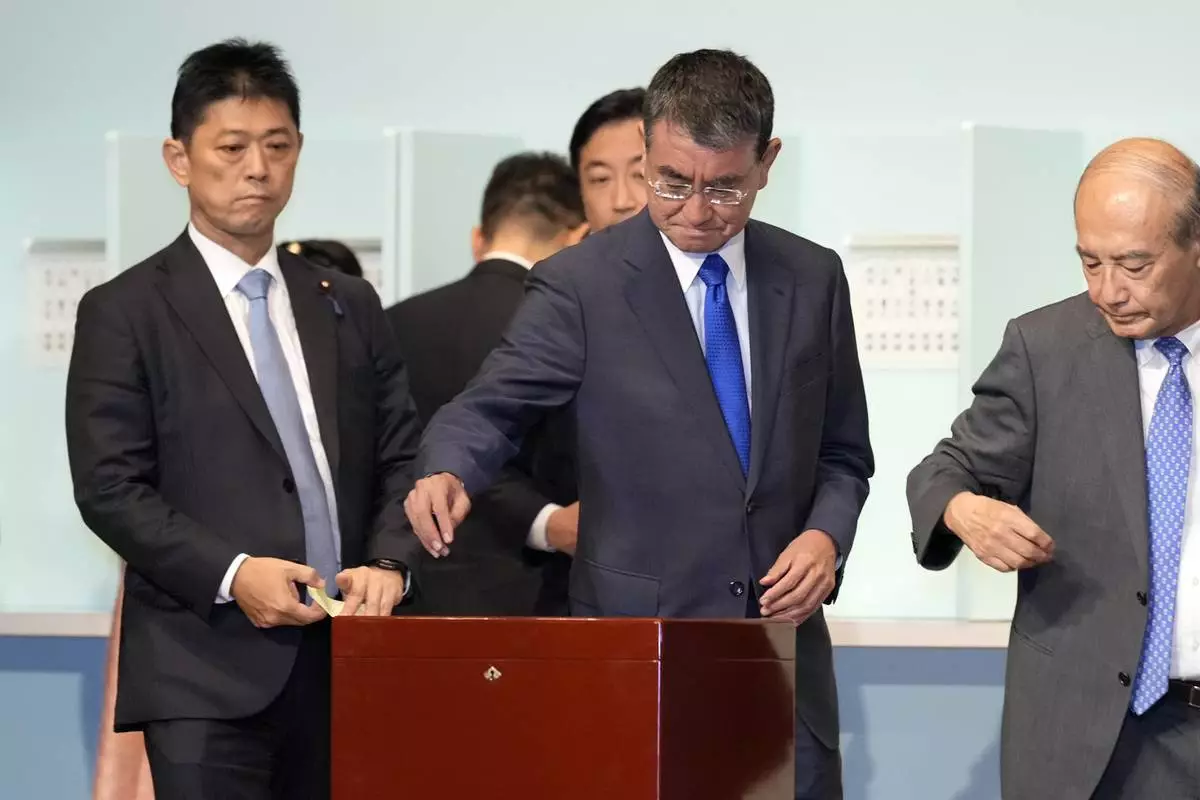
One of candidates Taro Kono, center, casts his ballot at the ruling Liberal Democratic Party's (LDP) leadership election Friday, Sept. 27, 2024, in Tokyo. (AP Photo/Hiro Komae, Pool)
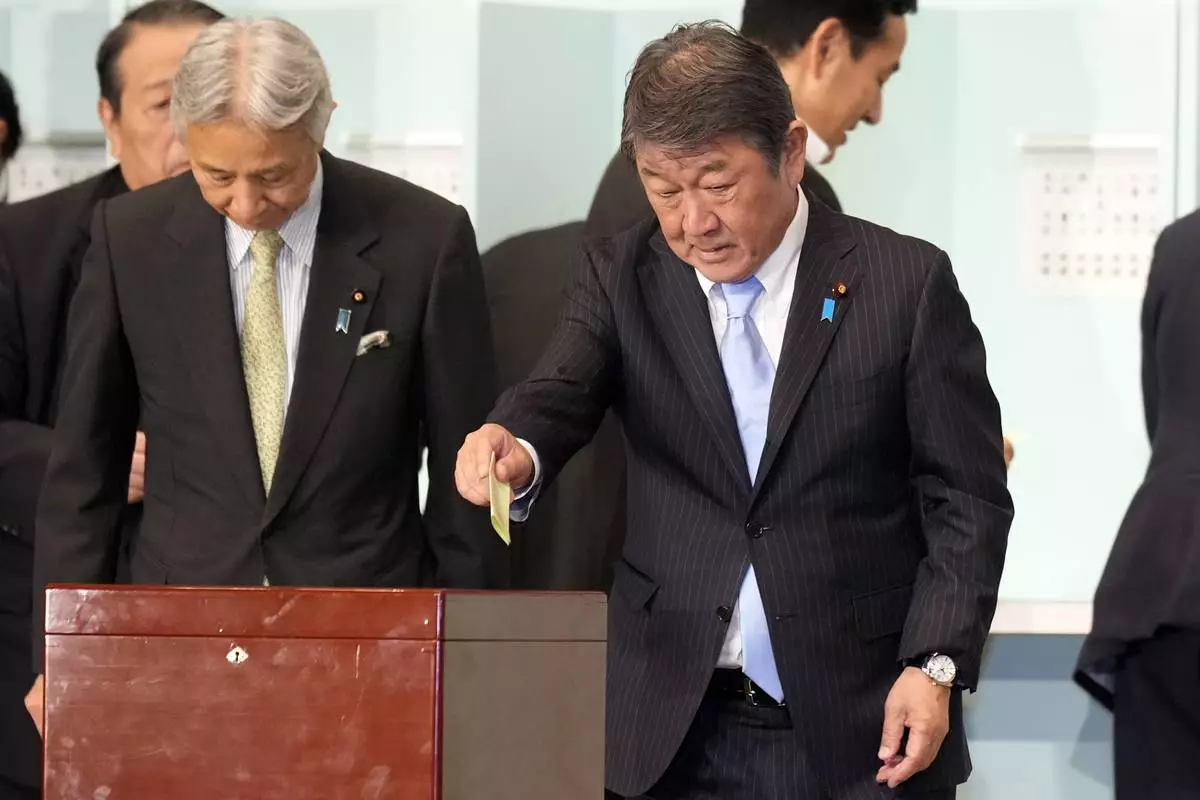
One of candidates, Toshimitsu Motegi, right, casts his ballot at the ruling Liberal Democratic Party's (LDP) leadership election Friday, Sept. 27, 2024, in Tokyo. (AP Photo/Hiro Komae, Pool)
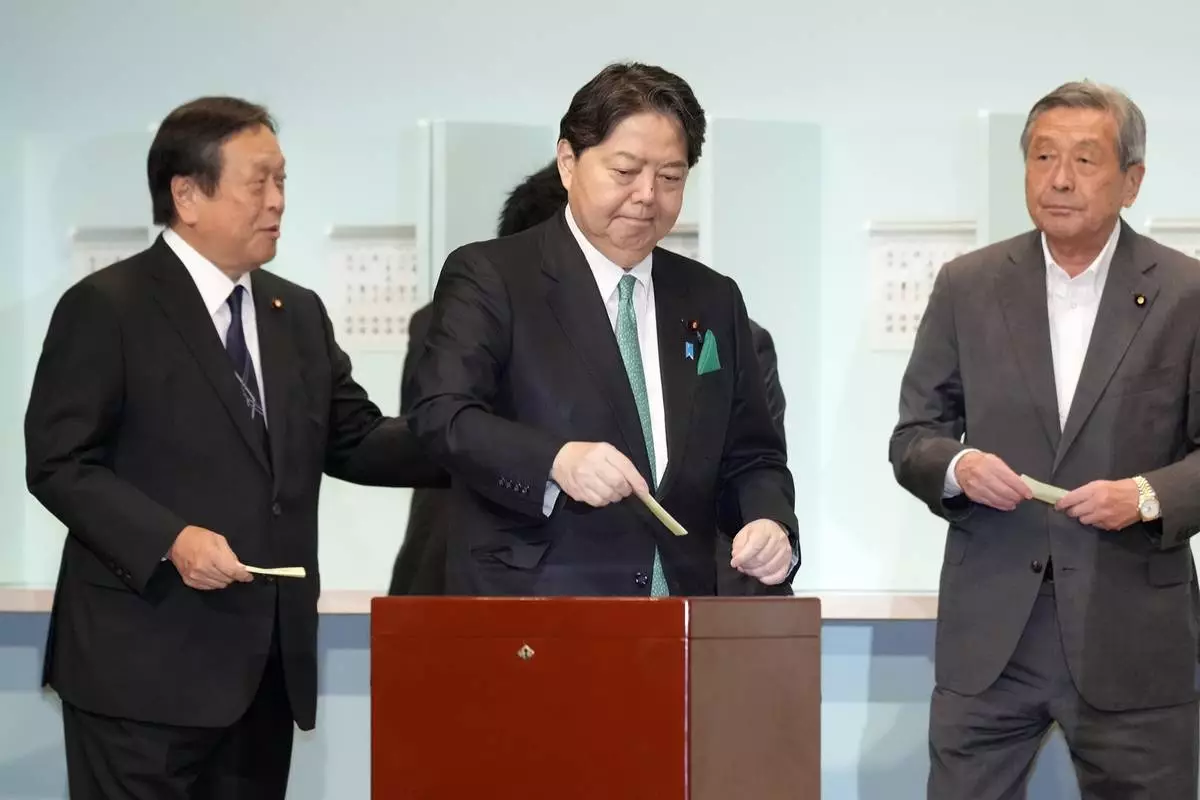
One of candidates, Yoshimasa Hayashi, center, casts his ballot at the Liberal Democratic Party's (LDP) leadership election Friday, Sept. 27, 2024, in Tokyo. (AP Photo/Hiro Komae, Pool)
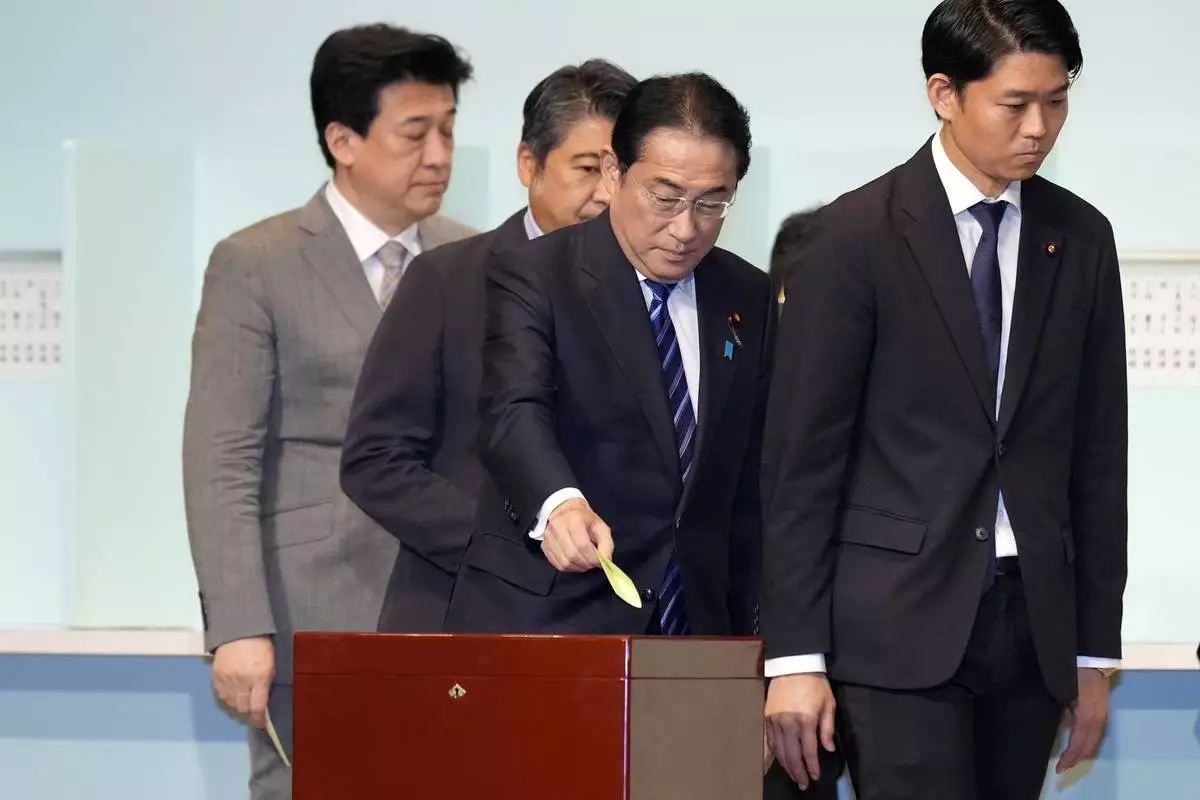
Japan's Prime Minister Fumio Kishida, center, casts his ballot at the Liberal Democratic Party's (LDP) leadership election Friday, Sept. 27, 2024, in Tokyo. (AP Photo/Hiro Komae, Pool)
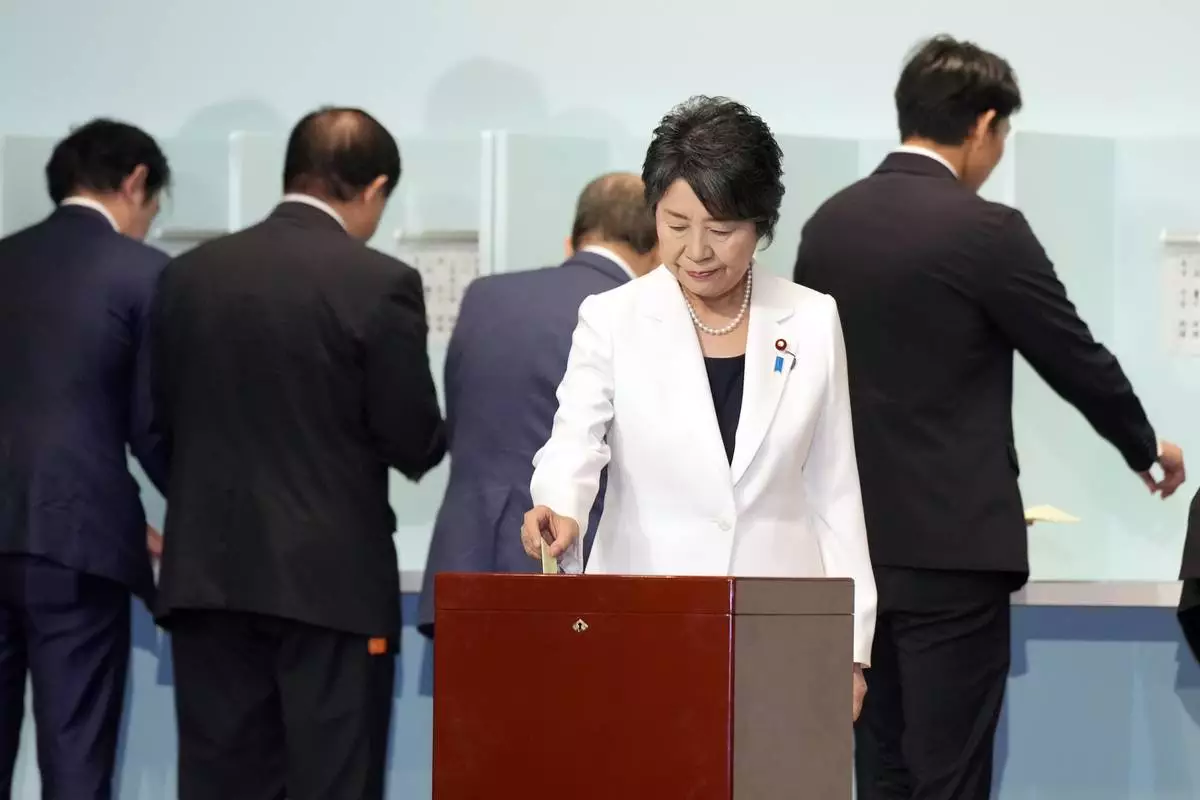
Japan's Foreign Minister and one of the candidates Yoko Kamikawa casts her ballot at the Liberal Democratic Party's (LDP) leadership election Friday, Sept. 27, 2024, in Tokyo. (AP Photo/Hiro Komae, Pool)
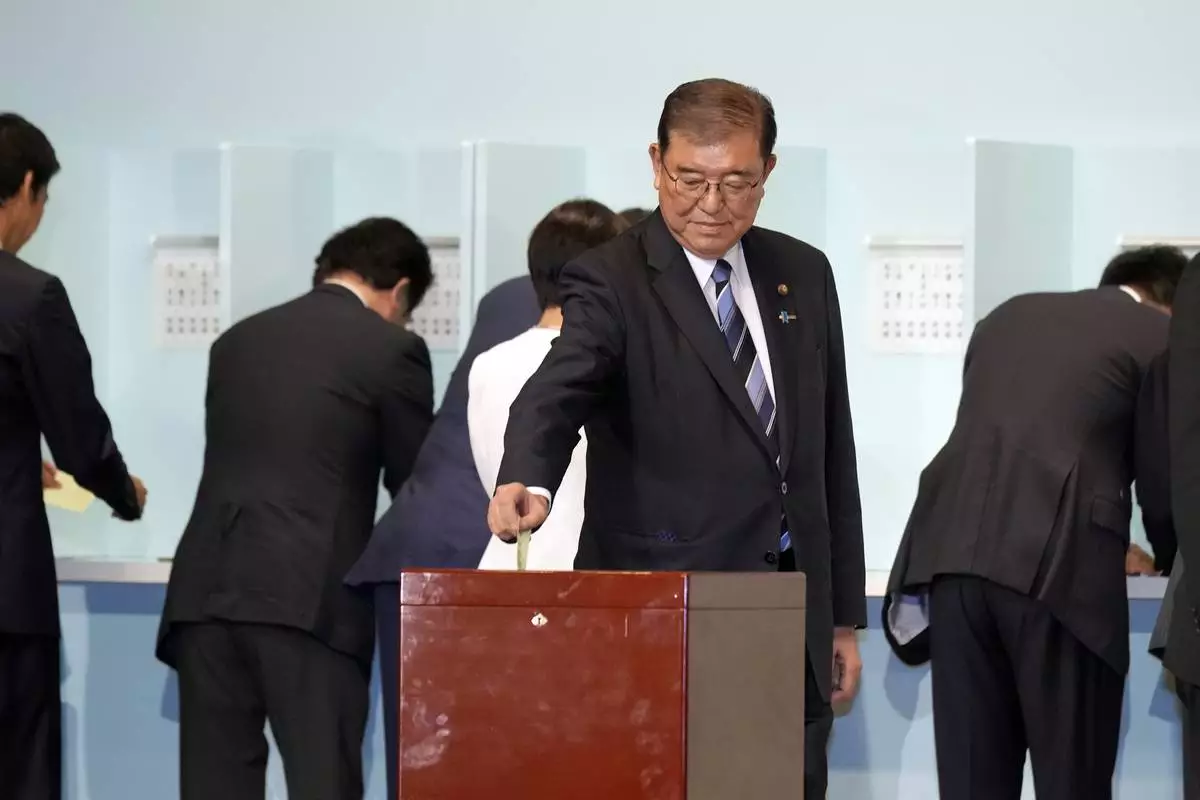
One of candidates Shigeru Ishiba casts his ballot at the ruling Liberal Democratic Party's (LDP) leadership election Friday, Sept. 27, 2024, in Tokyo. (AP Photo/Hiro Komae, Pool)
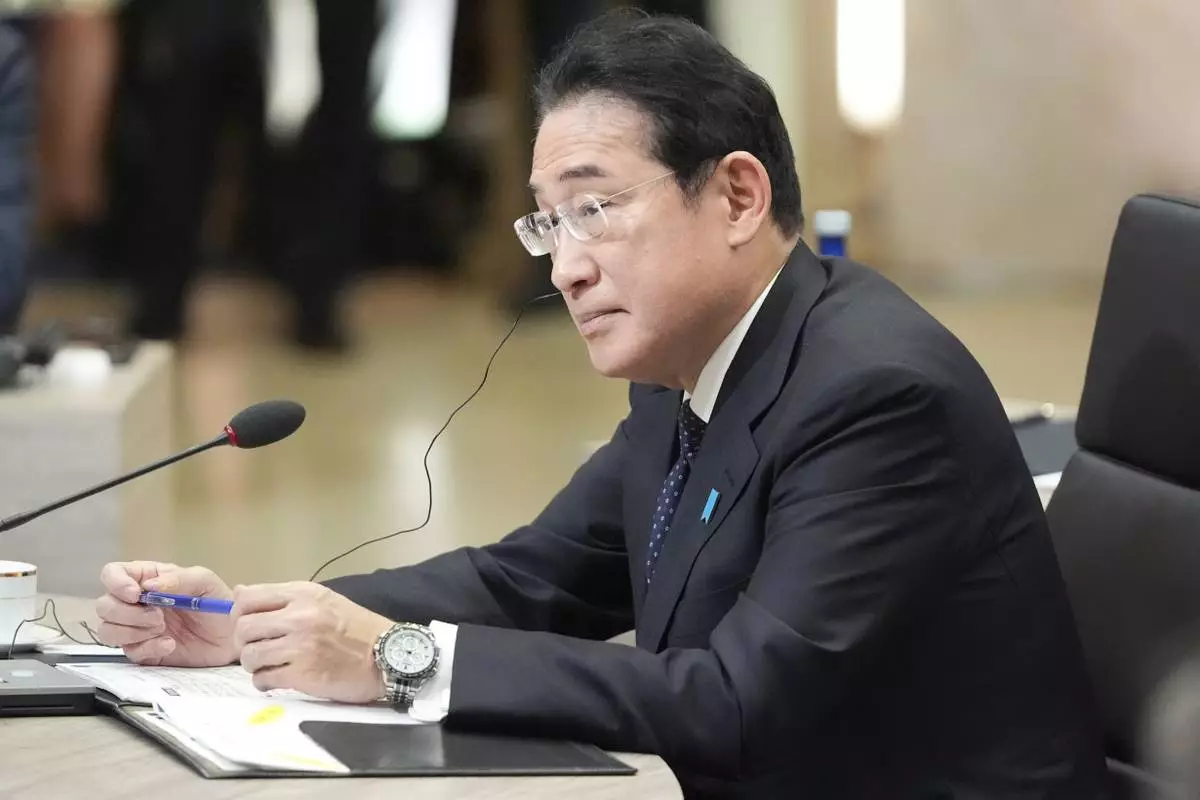
FILE - Japan's Prime Minister Fumio Kishida listens at the Quad leaders summit at Archmere Academy in Claymont, Del., Saturday, Sept. 21, 2024. (AP Photo/Mark Schiefelbein, File)
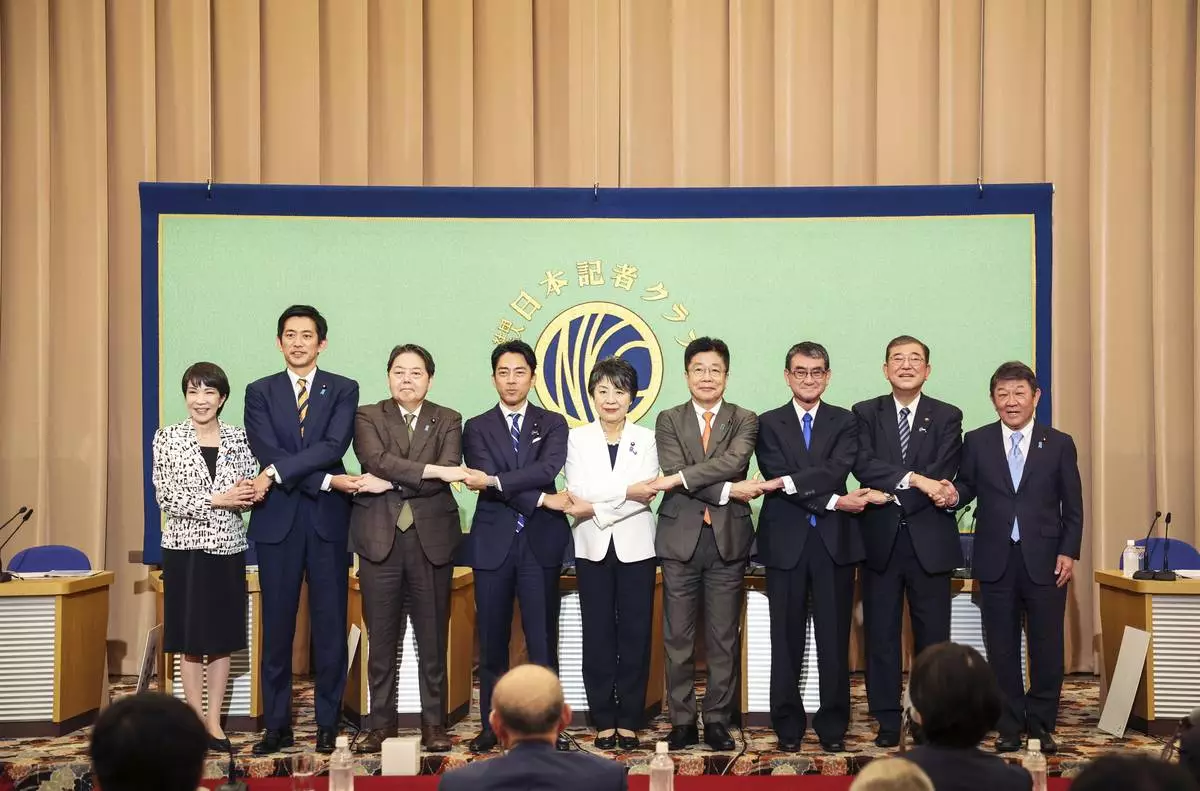
FILE - Candidates for Japan's ruling Liberal Democratic Party's (LDP) presidential election pose for a photo before a debate at the Japan National Press Club in Tokyo, on Sept. 14, 2024. From left are Economic Security Minister Sanae Takaichi, former Economic Security Minister Takayuki Kobayashi, Chief Cabinet Secretary Yoshimasa Hayashi, former Environment Minister Shinjiro Koizumi, Foreign Minister Yoko Kamikawa, former Chief Cabinet Secretary Katsunobu Kato, Digital Minister Taro Kono, former Defense Minister Shigeru Ishiba and Liberal Democratic Party Secretary General Toshimitsu Motegi. (Takashi Aoyama/Pool Photo via AP, File)





